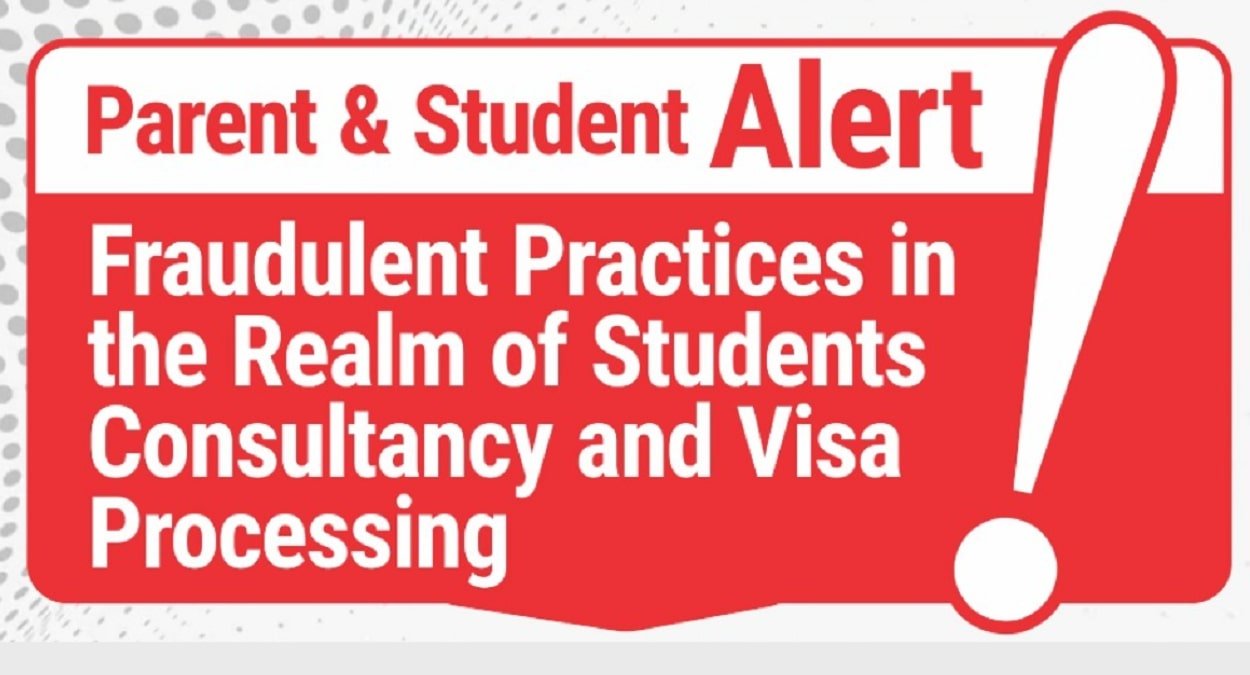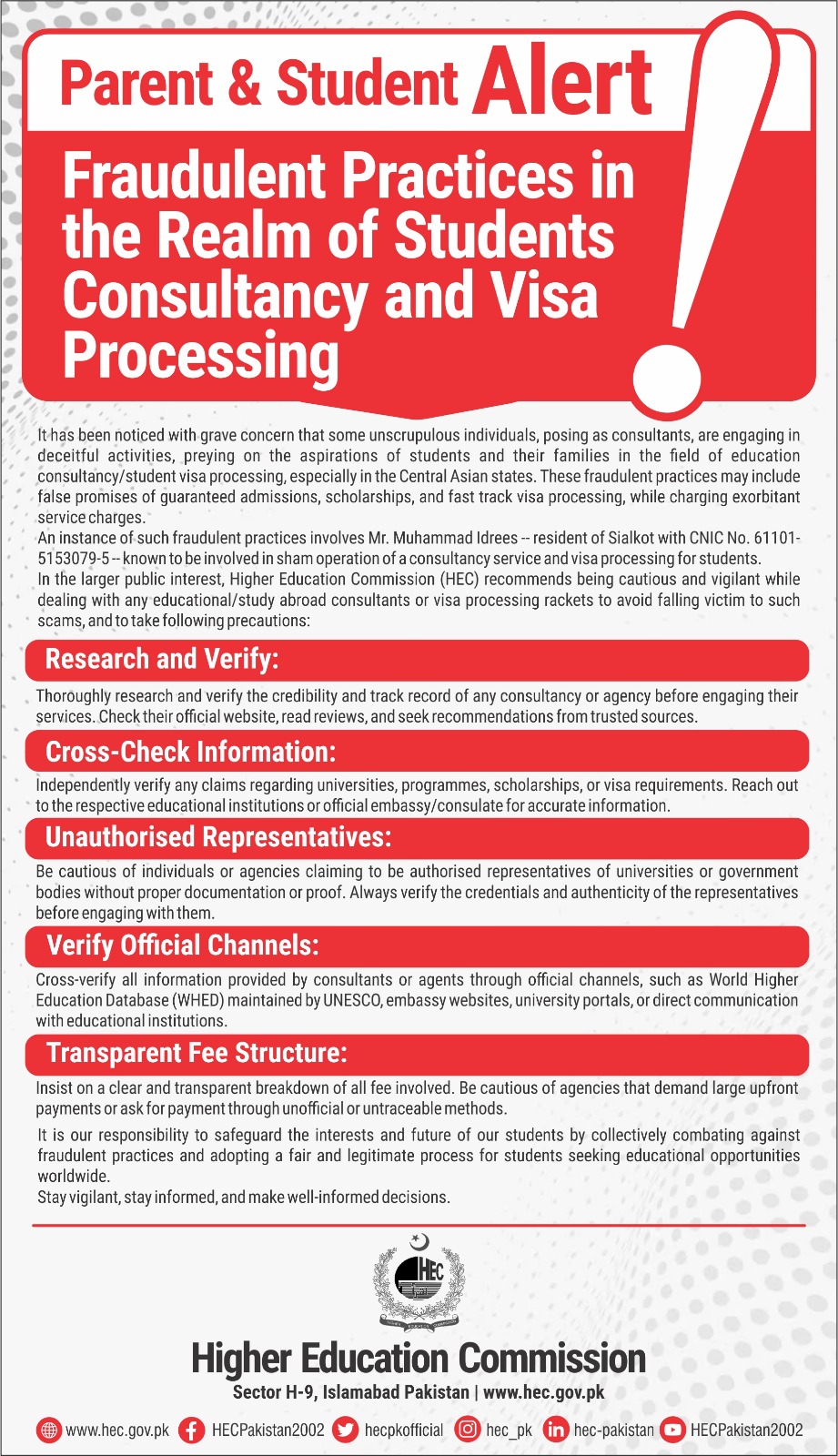
Safeguarding Against Educational Visa Fraud: HEC’s Proactive Measures
The Higher Education Commission (HEC) is taking strong steps to combat the growing menace of educational visa fraud, which has left students and parents vulnerable. Recent revelations have shone a light on organized fraud networks, some of which are based in Sialkot, that are taking advantage of the student visa procedure.
Table of Contents
These scam networks use a variety of deceitful strategies. They guarantee admission, charge high fees, and falsely advertise scholarship prospects. To counteract this troubling trend, HEC has issued a strong warning to both students and parents, encouraging them to exercise caution. 01.
Stay Informed and Protected
HEC emphasizes the crucial need of checking the registration status of international universities with the appropriate accrediting bodies. Furthermore, the commission recommends students to interact directly with educational institutions or even the embassy in order to obtain accurate and reliable information.
HEC additionally highlights the need for verification of any claims made regarding academic programs, scholarships, and visa requirements. Vigilance and extensive research are the two most important defenses against falling prey to educational visa fraud when students embark on their dreams of studying abroad.
FAQs about Educational Visa Fraud Prevention
Q1: What is educational visa fraud? Educational visa fraud refers to deceptive practices where scammers manipulate students by offering fake admissions, demanding excessive fees, and providing false assurances of scholarships or visa guarantees.
Q2: How does educational visa fraud happen? Fraud networks often pose as legitimate educational institutions, exploiting students’ aspirations to study abroad. They may promise guaranteed admissions, lucrative scholarships, or easy visa approvals to extract money and personal information.
Q3: What steps is HEC taking to prevent educational visa fraud? HEC is actively combating educational visa fraud by issuing stern warnings to students and parents. They stress the need for thorough verification of foreign university registrations, direct communication with institutions or embassies, and validation of academic and scholarship claims.
Q4: How can students protect themselves against educational visa fraud? Students should research extensively, verify university affiliations, and directly communicate with institutions or embassies to confirm claims. They should also be cautious of promises that seem too good to be true and avoid sharing personal and financial information without thorough validation.
Q5: What are the consequences of falling victim to educational visa fraud? Falling prey to educational visa fraud can lead to financial loss, wasted time and effort, and shattered academic dreams. It can also compromise personal information, potentially leading to identity theft and other fraudulent activities.
Q6: What is the role of students’ guardians in preventing fraud? Guardians play a crucial role in educating students about the risks of fraud, encouraging thorough research, and promoting vigilant decision-making when it comes to choosing educational opportunities abroad.
Q7: How can students report suspected educational visa fraud? Students who suspect they have encountered educational visa fraud should report it to relevant authorities, such as HEC or law enforcement agencies. Sharing information about suspicious activities can help prevent others from falling into similar traps.






